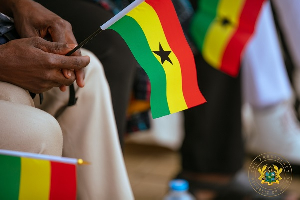Ghana’s Global Standing on Peace Declines
Ghana, long celebrated as one of Africa’s most stable democracies, has experienced a notable decline in its peacefulness ranking. According to the 2025 Global Peace Index (GPI), published by the Institute for Economics and Peace (IEP), Ghana fell six places, moving from its previous global position to 61st out of 163 countries. Regionally, the country slipped to 7th in Sub-Saharan Africa, raising questions about the underlying causes of this shift.
The Global Peace Index, regarded as the world’s leading measure of peacefulness, assesses nations based on levels of societal safety, ongoing conflict, and militarisation.
Key Factors Driving the Decline
While Ghana remains relatively peaceful compared to some of its neighbours, experts suggest several factors may have contributed to the drop:
- Rising Political Tensions
With the 2024 general elections still fresh in memory, heightened political rivalries and post-election disputes may have dented perceptions of stability. - Security Concerns in the Sahel Region
Instability and insurgent activity in parts of West Africa, particularly in Burkina Faso and Mali, pose spillover risks. Ghana’s government has had to strengthen border security, an indication of rising external threats. - Domestic Crime and Social Issues
Reports of violent crimes, cyber fraud, and communal conflicts have also contributed to concerns about public safety. - Economic Pressures
High youth unemployment, inflation, and the rising cost of living may indirectly affect peacefulness by fueling frustration and protests.

How Ghana Compares in Africa
Despite the decline, Ghana continues to rank among the more peaceful nations in Sub-Saharan Africa. Countries such as Mauritius, Botswana, and Namibia still lead the region, while conflict-affected states like South Sudan, Somalia, and the Democratic Republic of Congo remain at the bottom.
Ghana’s position as 7th in the region, however, signals the need for stronger governance strategies to preserve its reputation as a stable hub for democracy and investment.
Implications for Ghana
The drop in ranking is not merely symbolic—it could have practical effects:
- Foreign Investment: Investors often consider peace and stability before committing resources. A slide in peacefulness rankings may raise caution.
- Tourism: Ghana’s “Year of Return” and related cultural tourism drives have thrived on its reputation as a safe destination. Maintaining security is crucial to sustaining this growth.
- Youth Confidence: Rising insecurity and economic frustrations could erode the optimism of young people if not addressed through effective policies.

Expert Insights and Recommendations
Security analysts argue that Ghana must act swiftly to reverse this trend. Dr. Festus Aubyn, a West African peace and security expert, recently noted that “The resilience of Ghana’s democratic institutions remains strong, but socioeconomic inequalities and regional threats must be managed proactively.”
Practical takeaways for Ghana include:
- Strengthening border control against extremist infiltration.
- Expanding economic opportunities to reduce youth unemployment.
- Deepening civic education and dialogue to manage political tensions.
- Investing in community policing to enhance safety in urban and rural areas.
Ghana’s fall in the 2025 Global Peace Index is a wake-up call for leaders and citizens alike. While the country remains a beacon of democracy in Africa, the latest data highlights the need for renewed efforts to safeguard peace, address socioeconomic challenges, and reinforce national resilience. Sustaining Ghana’s reputation as a stable and attractive nation depends on how effectively these issues are tackled.

Read Also: Global Peace Index: Ghana Drops 4 Places In Latest Peace Rankings Amidst Election Saga

